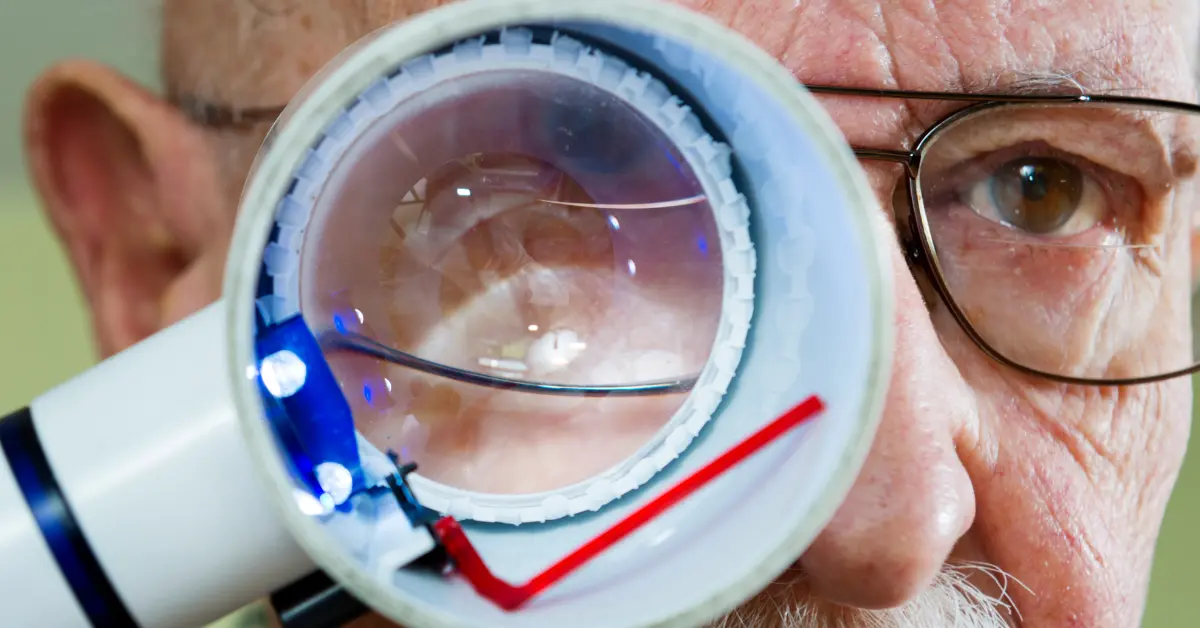Which Eye Vitamin is Best for Macular Degeneration?
Age-related Macular Degeneration (AMD) is a condition that affects the macula.
The macula plays a vital role in transfiguring light entering your eye into the images you see.
AMD prevalence increases with age from 2% among people aged 40-44 to 46% among people aged ?85.
As we age, the macula can deteriorate, leading to vision loss.
There are two types of macular degeneration, dry and wet.
One of the most common treatments for macular degeneration is using eye vitamins.
These are designed to support the macula’s health and slow disease progression.
But with so many options available, which eye vitamin is best for macular degeneration?
Continue reading to learn more about eye vitamins and minerals and how they can aid in treating AMD.
Vitamins for Macular Degeneration
The National Eye Institute conducted an Age-Related Eye Disease Study (AREDS).
They figured out that a specific combination of vitamins and minerals can reduce the risk of developing advanced macular degeneration by 25%.
This combination includes,
Zinc (80 mg)
Zinc is essential for maintaining vision.
The retina metabolic processes and retinal vascular system depend on Zinc.
It protects your eyes against macular degeneration and certain types of night blindness.
Some food items containing zinc are meat, fish, and seafood.
Copper (2 mg)
Copper deficiency is linked to peripheral neuropathy, a type of damage to the nervous system.
It can sometimes lead to vision problems by enhancing the functioning of antioxidant enzymes in the eye.
You can add foods like meats, shellfish, nuts, and whole grains to your diet.
Zeaxanthin (2 mg)

Zeaxanthin is a powerful antioxidant that might delay or prevent the progression of cataracts and AMD.
These are known as light filters and protect eye tissues from sunlight damage.
Being a carotenoid, it is found in green leafy vegetables such as lettuce, broccoli, kale, peas, and spinach.
Lutein (10 mg)
Like Zeaxanthin, Lutein functions as a light filter in the retina.
It is also a carotenoid found in green leafy vegetables.
Vitamin E (400 IU)
Vitamin E helps in,
- Supporting a healthy circulatory system
- Blood thinning and reducing the risk of blood clots
- Protecting your eyes against damaging free radicals
Nuts, Fortified cereals, and Greens are rich sources of Vitamin E.
Vitamin C (500 mg)

Vitamin C promotes blood circulation to the eyes and the rest of the body.
It also improves immunological function by keeping blood vessels open.
Vitamin C reduces the progression of age-related macular degeneration and lowers your risk of developing cataracts.
This vitamin is found in a variety of colorful fruits and vegetables.
Takeaway
In addition to the AREDS formula, some evidence suggests that omega-3 fatty acids may also benefit macular degeneration.
A study published in the Archives of Ophthalmology found that people who ate fish at least twice a week were at a lesser risk of developing AMD than those who ate fish less frequently.
If you’re considering taking eye vitamins for macular degeneration, you must talk to your eye doctor first.
They can help you determine which vitamins are right for you and monitor your progress.
While eye vitamins can be helpful, they’re not a cure for macular degeneration.
They are most effective when combined with other treatments.
These include regular eye exams and lifestyle changes like quitting smoking and maintaining a healthy diet.
Frequently Asked Questions
WowRx uses only high-quality sources while writing our articles. Please read our content information policy to know more about how we keep our content reliable and trustworthy.






